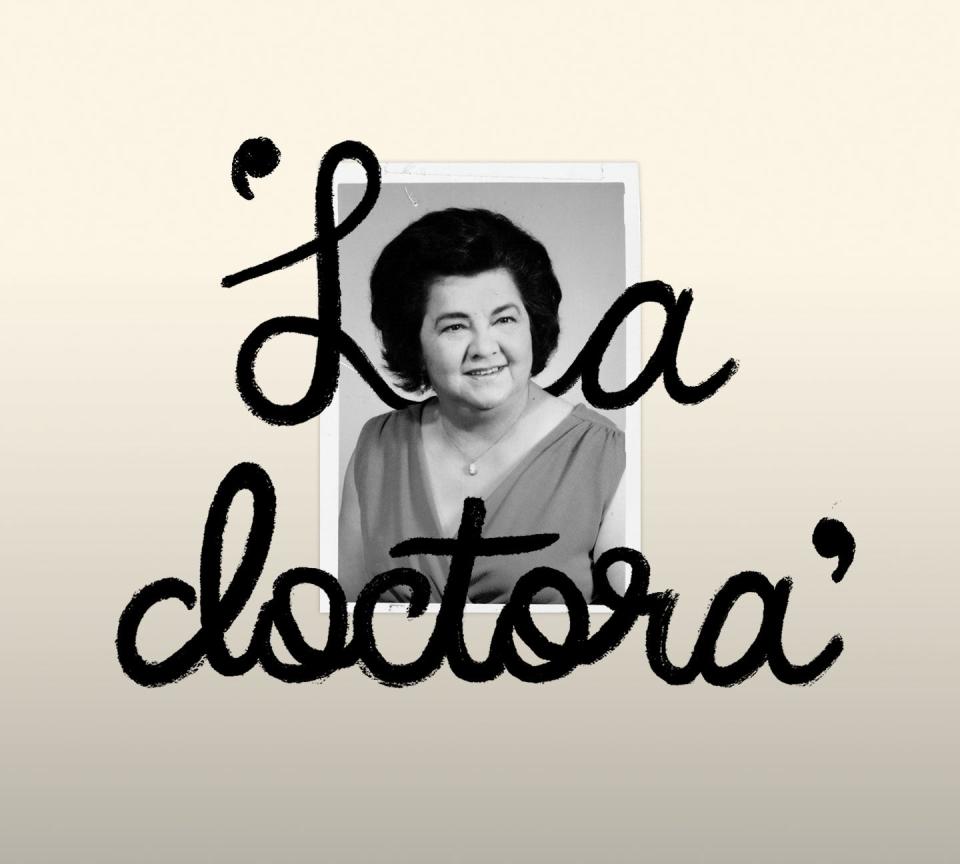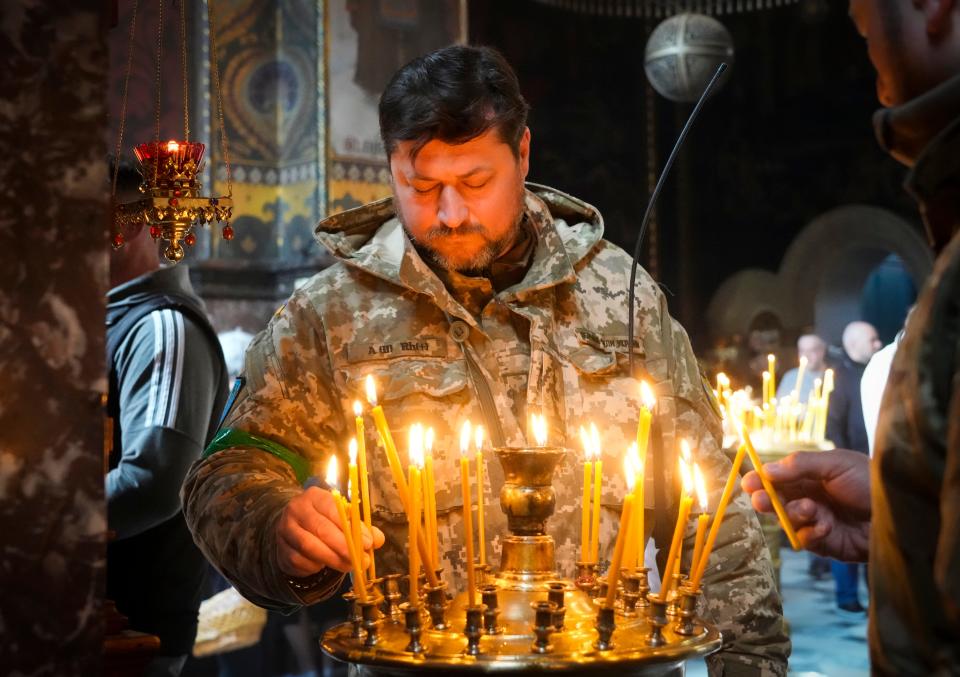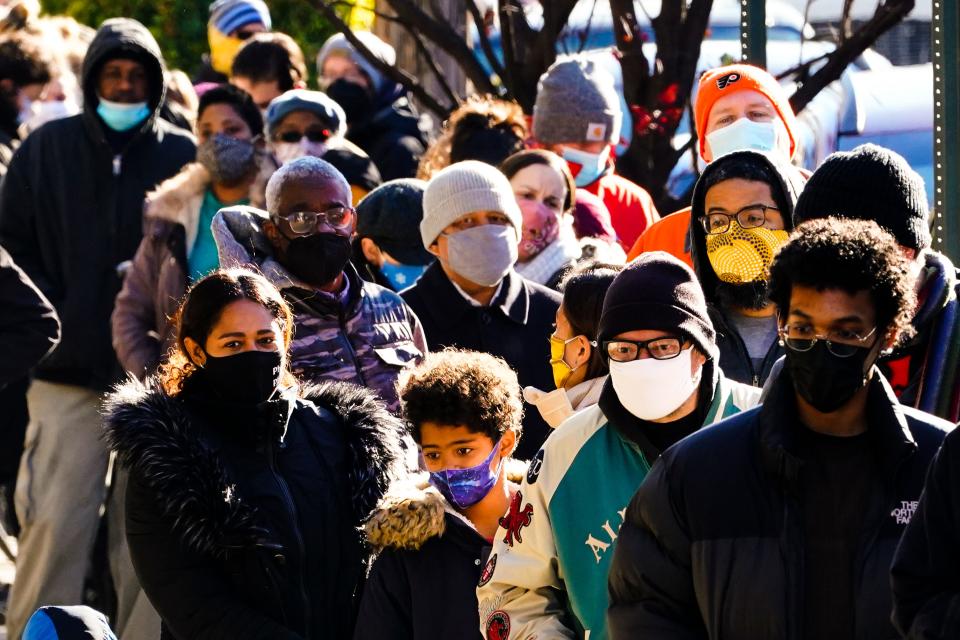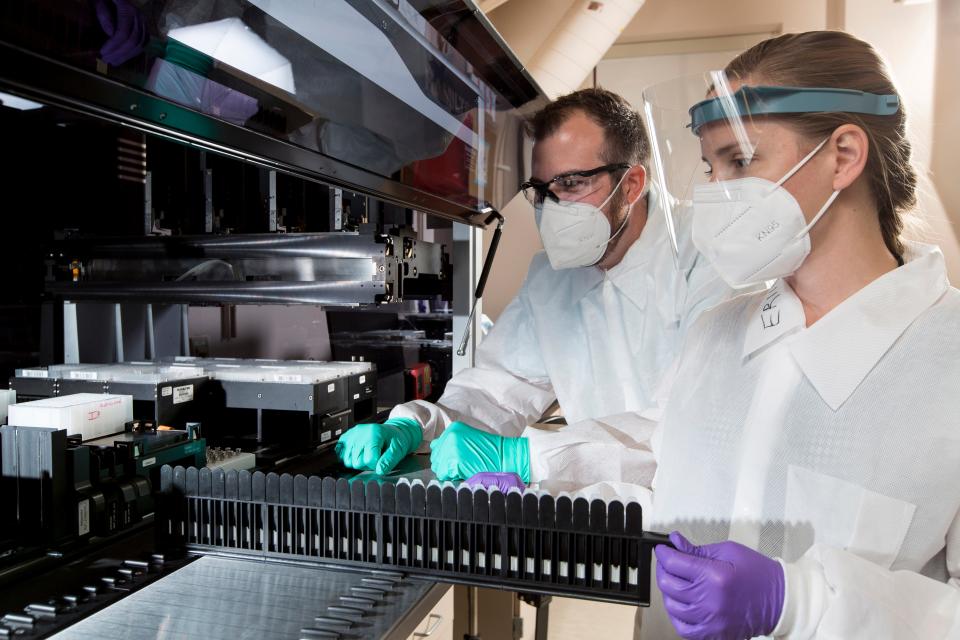'We've got to move at the speed of war'
- Oops!Something went wrong.Please try again later.
The United States and its allies are hustling to help save Ukraine. Joe Biden handed out his first grants of clemency as president. And the CDC says that nearly 60% of American adults were infected with the coronavirus between December and February.
👋 I'm Laura. You're you. It's Tuesday, here's the news!
But first, here's a woman you should know about. ⭐️ For decades, Dr. Clotilde Pérez García was one of the most influential people in the United States. García shaped politics and policy for Latino communities during the Chicano civil rights movement, was one of a few Mexican American women in the medical profession in Texas, and was recognized for preserving Mexican American history nearly erased under the weight of time and racism. The latest Never Been Told story explores her legacy and tells her story for the first time.

The Short List is a snappy USA TODAY news roundup. Subscribe to the newsletter here or text messages here.
'Moving heaven and earth' to help Ukraine
A meeting of defense officials from more than three dozen nations Tuesday helped unify the West's efforts to aid Ukraine to "win today and build strength for tomorrow," U.S. Defense Secretary Lloyd Austin said. "Countries all around the world have been stepping up to meet Ukraine's urgent needs," Austin said after the meeting. "We've got to move at the speed of war." Austin said Germany, which had balked at providing heavy weaponry to Ukraine, has agreed to send 50 anti-aircraft weapons to the embattled nation now in its third month of grueling war against Russia's invading forces. He said meetings similar to the one Tuesday will be held once a month, either virtually or in person. Before the meeting, Austin had promised to "keep moving heaven and earth" to support Ukraine. The U.S. and its allies have committed more than $5 billion worth of equipment to Ukraine's defense.
U.S. sanctions target Putin's Russian family, but a larger shadow family may remain.
A port city, a steel cage, a palace: The steps that made Putin 'the richest man in the world.'

Clemency, granted
Three convicted felons – Abraham Bolden Sr., Betty Jo Bogans and Dexter Eugene Jackson – are receiving presidential pardons from President Joe Biden, along with 75 others whose sentences the president commuted Tuesday, in the first use of clemency power of the Biden presidency. All of Biden's commutations target individuals serving sentences for low-level drug offenses, some of whom have served on home confinement during the COVID-19 pandemic. Many are Black or brown, and the White House said each has displayed efforts to rehabilitate themselves. The clemency announcements, which coincide with national "Second Chance Month," come as Biden will also announce new actions aimed at improving outcomes for felons who reenter society as part of a broader strategy to reform the criminal justice system.
Learn more: Here's what to know about presidential clemency powers.
What everyone's talking about
'Am I being charged?' New video released of Alec Baldwin after 'Rust' shooting.
Now that Elon Musk plans to buy Twitter, what does it mean for the users?
Women face gender bias even when running against another woman.
After sex, female spiders eat their mates. Male spiders are learning how to catapult away.
The Short List is free, but several stories we link to are subscriber-only. Consider supporting our journalism and become a USA TODAY digital subscriber today.
After omicron, nearly 60% of US adults had COVID antibodies
A huge proportion of American adults and even more children were infected by the coronavirus between December and February, perhaps explaining why cases have risen but not skyrocketed since. New government data released Tuesday looked at blood drawn for medical purposes during that time frame and found antibodies to the virus that causes COVID-19 in nearly 60% of people, up from one-third just three months earlier. For example, in adults under 50, 37% had antibodies in December, compared with 64% in February. In kids, the antibody rate rose from about 45% to 75%. Age groups that were most vaccinated saw the smallest increase in infections over the winter, as measured by antibodies.
Does your dog smell like oranges? How COVID-19 messes with smell.

Harvard confronts its ties to slavery
Harvard University announced a $100 million fund Tuesday to redress its ties to slavery after a report found that the university's leaders enslaved more than 70 people in the 17th and 18th centuries. The report, written by a committee appointed in 2019 by Harvard President Lawrence Bacow, found "slavery thrived in New England from its beginnings," including at Harvard. Many who read the report will find it "disturbing and even shocking," Bacow said. The university's president said the fund would go toward the recommendations in the report, which include efforts to improve educational opportunities for marginalized students and partnering with historically Black colleges and universities.
Real quick
More than 60 tons of ground beef recalled for possible E. coli contamination.
Siblings sentenced to prison for stealing $4 million worth of MacBooks.
Missing Wisconsin 10-year-old, Lily Peters, found dead near walking trail.
Olympic snowboarder Chloe Kim taking a break to focus on her mental health.
Could blood tests be used to detect Alzheimer's?
As pharmaceutical companies spend hundreds of millions of dollars on a potential treatment for Alzheimer’s disease, other researchers are focusing on a more elemental question. How can you tell whether a family member or loved one has Alzheimer’s or another form of dementia? These researchers say a new generation of blood tests could offer an easier and more accurate way to detect signs of Alzheimer’s, a disease that afflicts an estimated 6.5 million Americans. New research found one blood test can detect hallmarks of the disease in older adults with memory problems. It is among more than a half dozen blood tests being developed and tested to detect early stages of Alzheimer’s disease. Experts say the tests are important because they would be easier, cheaper and available to more people than brain scans or spinal taps now used to detect biological hallmarks of the disease.
Patients 'devastated' at Medicare limits on drug critics say needs more testing.

A break from the news
💸 3 Social Security mistakes that could cost you money you're entitled to.
👨🍳 Alton Brown knows you hate his slow cooker lasagna, so he fixed it.
💐 Mother's Day is around the corner! Check out these gifts and accessories for techy moms.
This is a compilation of stories from across the USA TODAY Network. Want this news roundup in your inbox every night? Sign up for The Short List newsletter here.
This article originally appeared on USA TODAY: Aid for Ukraine, COVID-19, Alzheimer's, Harvard University. It's Tuesday's news.

